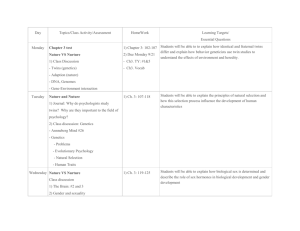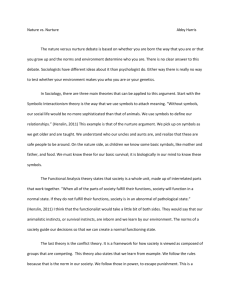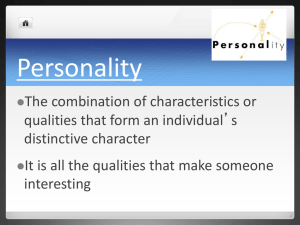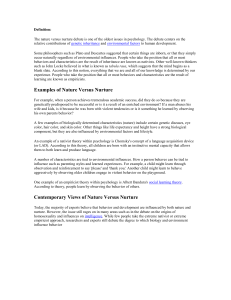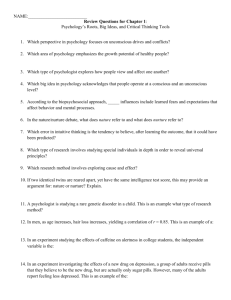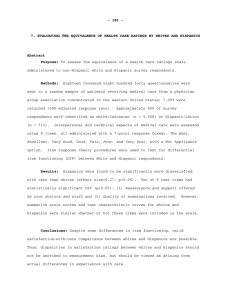Nature or Nurture?
advertisement
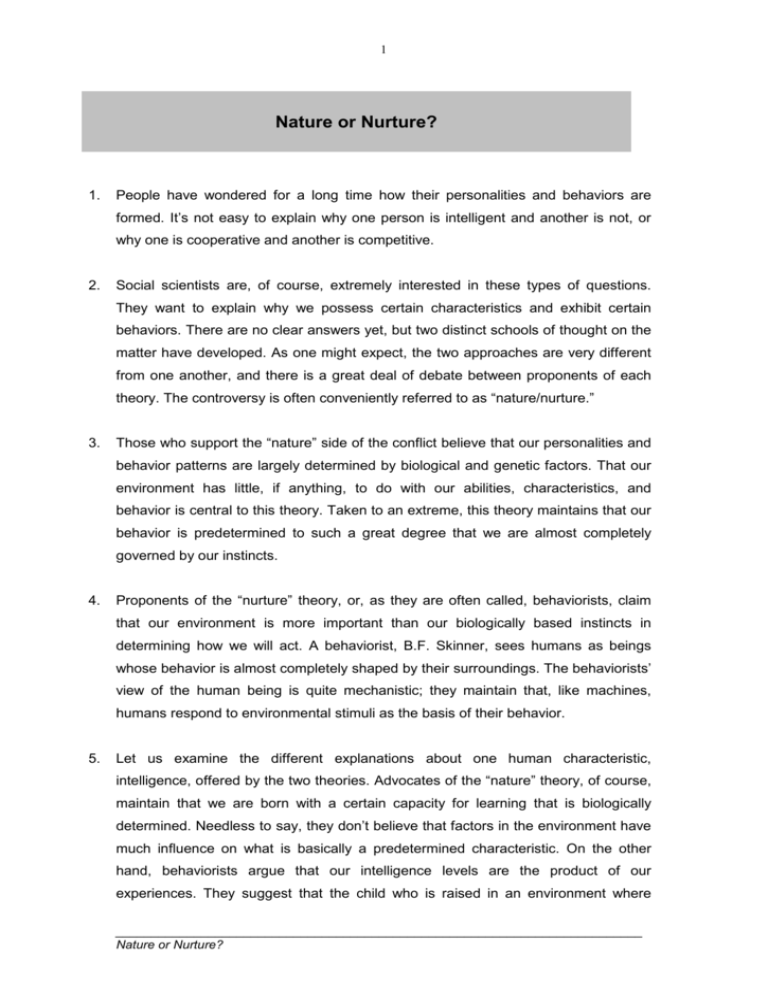
1 Nature or Nurture? 1. People have wondered for a long time how their personalities and behaviors are formed. It’s not easy to explain why one person is intelligent and another is not, or why one is cooperative and another is competitive. 2. Social scientists are, of course, extremely interested in these types of questions. They want to explain why we possess certain characteristics and exhibit certain behaviors. There are no clear answers yet, but two distinct schools of thought on the matter have developed. As one might expect, the two approaches are very different from one another, and there is a great deal of debate between proponents of each theory. The controversy is often conveniently referred to as “nature/nurture.” 3. Those who support the “nature” side of the conflict believe that our personalities and behavior patterns are largely determined by biological and genetic factors. That our environment has little, if anything, to do with our abilities, characteristics, and behavior is central to this theory. Taken to an extreme, this theory maintains that our behavior is predetermined to such a great degree that we are almost completely governed by our instincts. 4. Proponents of the “nurture” theory, or, as they are often called, behaviorists, claim that our environment is more important than our biologically based instincts in determining how we will act. A behaviorist, B.F. Skinner, sees humans as beings whose behavior is almost completely shaped by their surroundings. The behaviorists’ view of the human being is quite mechanistic; they maintain that, like machines, humans respond to environmental stimuli as the basis of their behavior. 5. Let us examine the different explanations about one human characteristic, intelligence, offered by the two theories. Advocates of the “nature” theory, of course, maintain that we are born with a certain capacity for learning that is biologically determined. Needless to say, they don’t believe that factors in the environment have much influence on what is basically a predetermined characteristic. On the other hand, behaviorists argue that our intelligence levels are the product of our experiences. They suggest that the child who is raised in an environment where __________________________________________________________________________ Nature or Nurture? 2 there are many stimuli which develop his or her capacity for appropriate responses will experience greater intellectual development than one who is raised in a stimulusdeprived environment. 6. The social and political implications of these two theories are profound. In the United States, for example, Hispanics often score below whites on standardized intelligence tests. This leads some “nature” proponents to conclude that Hispanics are generally inferior to whites. Behaviorists, in contrast, say that the differences in scores are due to the fact that Hispanics are often deprived of many of the cultural and other environmental advantages that whites enjoy, and that, as a result, they do not develop the same responses that whites do. 7. Neither of these theories can yet fully explain human behavior. In fact, it is quite likely that the key to our behavior lies somewhere between these two extremes. That the controversy will continue for a long time is certain. __________________________________________________________________________ Nature or Nurture?

